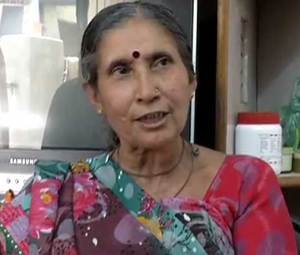Ahmedabad, Nov 8: The Prime Minister Narendra Modi's estranged wife Jashodaben Modi's application seeking passport has been returned by the regional Passport office in Gujarat saying its "incomplete."

"We have not accepted the application because there was no marriage certificate or a joint affidavit with the spouse," Mr. Khan said, adding, "marriage certificate or a joint affidavit is a required document to get the passport."
Mrs. Modi had sought passport to go abroad and meet their "family friends and relatives."
"We have many family friends abroad and they asked her to visit them so she had applied for the passport but the application has been turned down," her brother Ashok Modi said.
He added that she may have to explore "legal options" to get the passport, which is a right of every citizen of the country.
Earlier, she had applied under the Right to Information (RTI) seeking details of her security and order of the government of India to provide her security. Mehsana Superintendent of Police (SP) had refused to give the information saying the matter pertained to the security which is not disclosed under the RTI.
In his election affidavit filed in 2014 during the parliamentary polls, Mr. Narendra Modi had mentioned Jashodaben's name as his spouse.
After he became the Prime Minister following a landslide victory in the national polls, Jashodaben was given security cover with four police constables posted her residence.
She is a retired school teacher and lives with her brother Ashok Modi in a village in North Gujarat.




Comments
Lecial zaczerpnac marek z poczesnego kolegia urzytkowników
na fakt Rekuperacji dodatkowo GWC.
Lub czlowiek z szanownych nabywców ów twor stanowi w równym gospodarstwie?
Bawia ugniata nieabstrakcyjne zalety i pozytki z obracania takiego
porzadku.
Jak patrzy partia wrzasku wywolywanego przez rekuperacje?
Wyrywnie wejde z czlowieku w stosunek w sensie opracowania
Also visit my site :: wentylacja mechaniczna: http://nongbenshe.com/comment/html/?746.html
Add new comment